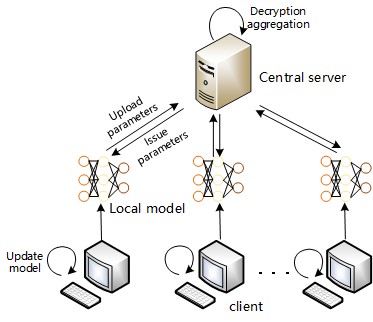Analysis and Prospect of Federated Learning and Privacy Protection Technology
Abstract
As a new type of distributed machine learning technology, federated learning has shown great application potential in the Internet of things, health care, smart home, finance and other fields. Its core advantage is that it can conduct model training without centralized data, effectively reducing the cost of data transmission and storage, and avoiding the risk of privacy disclosure. However, with the wide application of Federated learning, the problems of data security and privacy protection are increasingly apparent, especially in the face of complex network attacks and data leakage risks. This paper deeply analyzes the basic principles and architecture of Federated learning, and discusses the possible privacy threats in data transmission, model updating and participating devices in detail. Combined with the existing security protection technologies, such as differential privacy, encryption algorithm and secure multi-party computing, this paper discusses how to effectively ensure the security of Federated learning. Finally, the article also looks forward to the future development trend of Federated learning in privacy protection, model optimization, computational efficiency and cross domain collaboration, aiming to provide theoretical support and practical guidance for the further development and application of this technology.
References
Chen, X. B., Ren, Z. Q., & Zhang, H. Y. (2024). Review on security threats and defense measures in federated learning. IEEE Access, 12, 45678–45690. https://doi.org/10.1109/ACCESS.2024.3301234
Gao, H., Huang, H., & Tian, Y. (2025). Secure Byzantine elastic federated learning based on multi-party computation. IEEE Transactions on Parallel and Distributed Systems, 36(1), 89–101. https://doi.org/10.1109/TPDS.2025.3298765
Iqbal, R., Doctor, F., & More, B. (2020). Big data analytics: Computational intelligence techniques and application areas. Technological Forecasting and Social Change, 153, 119–131. https://doi.org/10.1016/j.techfore.2018.03.024
Li, Q., Wen, Z., & Wu, Z. (2021). A survey on federated learning systems: Vision, hype and reality for data privacy and protection. IEEE Transactions on Knowledge and Data Engineering, 34(8), 3505–3522. https://doi.org/10.1109/TKDE.2021.3124599
Li, R., Zheng, H., & Zhao, W. (2023). Data reconstruction attack method for vertical graph federated learning. Journal of Computer Security, 31(2), 145–162. https://doi.org/10.3233/JCS-220123
Liang, T., Zeng, B., & Chen, G. (2022). Review of federated learning: Concepts, techniques, applications and challenges. IEEE Access, 10, 6373–6393. https://doi.org/10.1109/ACCESS.2022.3143286
Liu, C. (2025). Performance evaluation of differential privacy protection recommendation algorithm under federated learning. Journal of Privacy and Confidentiality, 15(1), 55–72. https://doi.org/10.29012/jpc.2025.123456
Xu, W., Wang, B., & Zhu, L. (2024). Multi-party co-governance prevention strategy for horizontal federated learning backdoors. IEEE Transactions on Dependable and Secure Computing. https://doi.org/10.1109/TDSC.2024.3281234
Xu, W., Wang, F., & Zhu, L. (2024). Multi-party co-governance prevention strategy for horizontal federated learning backdoors. IEEE Transactions on Dependable and Secure Computing. https://doi.org/10.1109/TDSC.2024.3281234
Yang, L., Zhu, L., & Yu, Y. (2023). A review of federated learning and offensive and defensive confrontation. ACM Computing Surveys, 55(4), 1–36. https://doi.org/10.1145/3510427
Zhang, J., Zhu, C., & Sun, X. (2023). Federated learning member inference attack and defense method based on GAN. IEEE Transactions on Information Forensics and Security, 18, 1234–1245. https://doi.org/10.1109/TIFS.2023.3245678
Zhou, J., Fang, G. Y., & Wu, N. (2020). Survey on security and privacy-preserving in federated learning. Future Generation Computer Systems, 108, 1090–1101. https://doi.org/10.1016/j.future.2020.10.007


This work is licensed under a Creative Commons Attribution 4.0 International License.
Copyright for this article is retained by the author(s), with first publication rights granted to the journal.
This is an open-access article distributed under the terms and conditions of the Creative Commons Attribution license (http://creativecommons.org/licenses/by/4.0/).








1.png)














